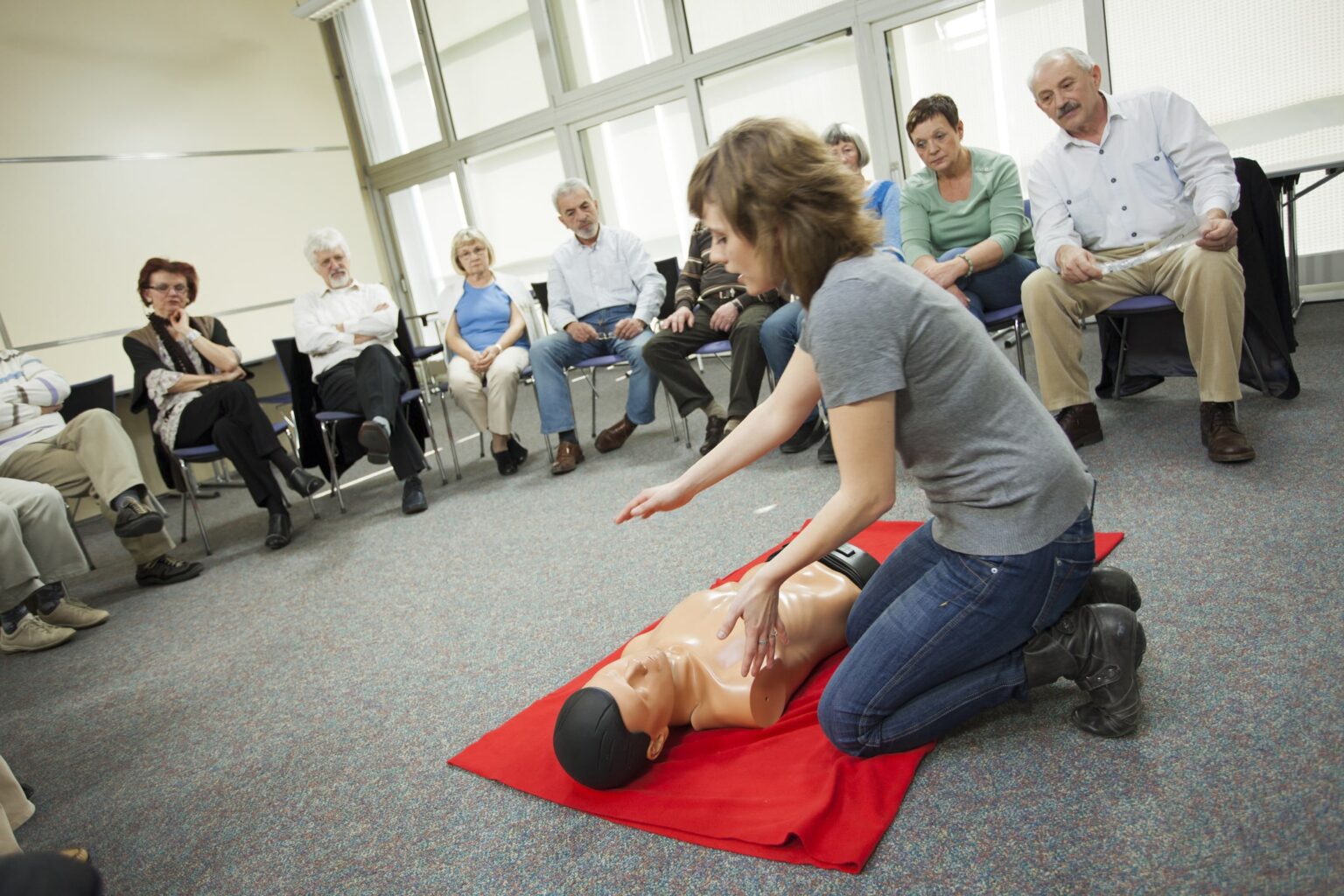American Heart Association© Group CPR Discount Classes in Oakland

About Group Classes
Safety Training Seminars can come out to your place of business at any time on any day of the week to conduct BLS, CPR, and First-aid training courses. Our friendly instructors arrive on time, and bring out all the necessary supplies and equipment to conduct a fun and informative safety training course.
Alternative: If organizing a class at your location is complicated, you can send your staff out to take classes at one of our 57 offices located throughout Northern California.
Ask about Promo Code discounts.
More Information About Group Classes
Enhancing Community Safety: Group CPR Training Classes in Oakland
Cardiopulmonary resuscitation (CPR) is a life-saving skill that can make a crucial difference in emergency situations. Group CPR training classes in Oakland, California, offer individuals and organizations the opportunity to learn and practice CPR techniques in a supportive environment. This article explores the importance of group CPR training, the benefits of these classes, and their impact on community safety in Oakland.
The Importance of Group CPR Training
Cardiac arrest can happen to anyone, at any time, and having individuals trained in CPR can significantly increase the chances of survival. Group CPR training provides participants with the knowledge and skills needed to recognize cardiac arrest, perform CPR, and use an automated external defibrillator (AED) until professional help arrives.
In a group setting, participants can practice CPR techniques on manikins under the guidance of certified instructors. This hands-on approach allows individuals to gain confidence in their abilities and prepares them to respond effectively in real-life emergencies.
Benefits of Group CPR Training Classes
One of the key benefits of group CPR training classes is the opportunity for teamwork and collaboration. In an emergency situation, having multiple trained individuals can improve the response time and effectiveness of CPR efforts. Group training also fosters a sense of community and shared responsibility for safety.
Furthermore, group CPR training can be more cost-effective than individual training, as the cost of the class can be divided among participants. This makes it more accessible to a wider range of people, including community groups, schools, and businesses.
Impact on Community Safety
The impact of group CPR training on community safety in Oakland cannot be overstated. By increasing the number of individuals trained in CPR, these classes create a network of potential life-savers who are prepared to respond to cardiac emergencies. This can lead to faster intervention and improved outcomes for those experiencing cardiac arrest.
Additionally, group CPR training raises awareness about the importance of CPR and AED use in the community. It encourages individuals to take proactive steps to learn these life-saving skills and empowers them to make a difference in emergency situations.
Conclusion
Group CPR training classes in Oakland play a critical role in enhancing community safety and preparedness. By providing individuals with the knowledge and skills needed to respond to cardiac emergencies, these classes create a network of trained responders who are ready to act when seconds count. Through collaboration, education, and community engagement, Oakland is working to build a safer and more resilient community for all.
FAQs
Who should attend group CPR training classes in Oakland?
Group CPR training classes are suitable for anyone interested in learning life-saving skills, including parents, teachers, caregivers, healthcare professionals, and members of the general public.
How long do group CPR training classes typically last?
Group CPR training classes usually span a few hours, depending on the training provider and the depth of instruction. Classes typically include a combination of theoretical instruction, hands-on practice, and skill demonstrations.
Is there a renewal requirement for group CPR training certification?
Yes, CPR certifications are typically valid for two years, after which individuals are required to undergo renewal courses to maintain their certification. Renewal courses often include updates on guidelines and protocols, as well as opportunities to refresh and practice essential skills. Renewing CPR certification ensures that individuals stay current with the latest best practices in CPR and are prepared to respond confidently to emergencies.

